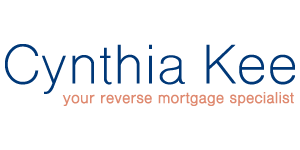Laid Off at 61: Now What?
A Moneywise reader recently posed a difficult question: “I’m 61, laid off, with $103,000 in savings and a $1,800/month mortgage. How do I bridge the gap to Social Security?” Unfortunately, life has a way of upending even the most carefully crafted retirement plans.
With economic uncertainty looming and predictions of a recession on the horizon, more Americans may soon find themselves in similar predicaments. The Bureau of Labor Statistics highlights a troubling reality: older workers who lose their jobs during a recession are more likely to experience negative health effects, including long-term consequences that extend beyond financial hardship. In short, being laid off late in life can take a toll—financially, emotionally, and physically.
Assessing the situation
Let’s break down what we know about this individual’s financial landscape:
They’re 61 years old.
They carry a monthly mortgage payment of $1,800.
They have a retirement nest egg of just over $100,000.
However, several crucial details remain unknown:
How much equity do they have in their home?
Do they have any chronic health conditions?
What are their projected Social Security benefits at ages 62-70?
How marketable are their skills in today’s job market?
The Challenge of Tapping Retirement Savings
Moneywise advises against prematurely depleting retirement funds, warning, “If you draw down your retirement savings too early, you won’t have enough invested to earn returns.” The lost opportunity for growth could leave them with insufficient funds later in retirement, making other strategies more appealing.
Exploring Solutions
The most direct solution would be securing new employment. However, older workers often face challenges in re-entering the workforce, with job searches sometimes stretching beyond a year. Meanwhile, unemployment benefits offer only limited, short-term relief, with most states only paying benefits for 26 weeks.
If re-employment isn’t an immediate option, what alternatives exist? Moneywise suggests considering a reverse mortgage or downsizing—options that depend heavily on home equity.
Would a HECM help?
For example, suppose this homeowner has a $400,000 home with only $60,000 left on the mortgage. If they qualify for a Home Equity Conversion Mortgage (HECM) at age 62, their reverse mortgage could eliminate their $1,300 monthly principal and interest payments, providing much-needed relief. Additionally, they could access a $38,000 HECM line of credit. However, this strategy alone doesn’t fully replace their lost income.
The Social Security Dilemma
Another tempting but potentially costly option is claiming Social Security benefits at 62. While this provides an immediate income stream, the long-term financial impact of reduced lifetime benefits can be substantial. A healthy retiree may live to regret claiming benefits too early.
The Need for Professional Guidance
A trusted financial advisor can provide critical guidance in situations like these. The goal isn’t just to survive the short term but to establish a sustainable, long-term financial plan. Reverse mortgage professionals should encourage clients to seek outside counsel rather than acting as de facto retirement planners.
The Bottom Line
A reverse mortgage can help—but it’s not a cure-all. It may provide temporary relief, but without a broader strategy to replace lost income, financial insecurity remains a primary concern. The key to navigating late-career layoffs lies in exploring multiple options, making informed decisions, and planning for long-term stability.
Who Qualifies for a Reverse Mortgage?
Reverse mortgages are specifically designed for older borrowers. This option is generally only available to people 62 and older who meet the following basic criteria:
You must be listed on your home’s title as the owner.
Your income and credit clear a financial evaluation.
Your home is your primary residence for the life of the reverse mortgage.
You cannot be delinquent on any federal debt.
Eligibility Requirements
Reverse mortgages require borrowers to meet a specific set of requirements. To be eligible, you must:
Meet with a reverse mortgage counselor who’s approved through HUD before you apply to discuss how a reverse mortgage works and fees associated with it.
Be able to show you can pay your property taxes, condo association fees, and home insurance, as well as keep up with maintenance and repairs.
Make timely payments on property taxes and flood and hazard insurance.
Spend More Time Enjoying Life! Contact Cynthia for a Complimentary Personal Assessment.
At CDC Solutions, we help unlock the power of your home to enjoy retirement on your terms with family, friends, and the things you cherish most in life.




